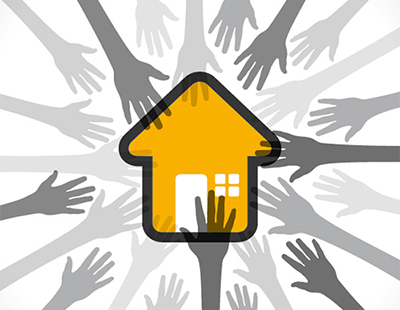Simon: I think it was much easier to predict what was likely to happen back then because of the actions of governments and central banks who used massive stimulus to keep their economies from collapsing.
There was a lot of speculation at the beginning of the pandemic about what would happen to the property market. The consensus at that time seemed to be that there would be a crash in prices. I openly expressed the opposite view.
Peta: It appears to me (however much you downplay your predictions) that you would be a very strong candidate to offer a generalised property forecast for 2022? Obviously, it’s far from easy – and probably has an element of putting your neck on the line a bit. But I think people would be interested to hear your thoughts?
Simon: As we emerge from the pandemic, the crystal ball is a lot cloudier. With the actions taken previously having now been withdrawn, it’s much more difficult to say what will happen, due to several destabilising and hard to predict factors.
It’s tempting to say that things will merely reverse, with winners becoming losers and losers becoming winners (think Amazon vs easyJet). However, although there will be a bit of that, I don’t think it will be that simple. There are a lot of unknowns and many threats right now.
If I had to make an overall prediction, though, I’d say that during the next two years, after a period of turbulence, inflation will slow, interest rates will stabilise and there will be an unprecedented worldwide economic boom.
Peta: Taking into consideration the period of turbulence you anticipate then: what do you see happening to house prices in 2022?
The key driver of house prices is interest rates. The lower they are, the cheaper mortgages become. At the ultra-low levels we have seen in recent times, even at relatively higher rates, affordability has been sky high.
Demand was only kept in check by restricting the money supply, achieved by capping affordability, which means insisting on repayment mortgages as opposed to interest only, meaning higher repayments, asking for big deposits and limiting mortgages to a maximum percentage of income.
Despite these measures, prices were gradually rising in many places even before the pandemic as people gradually gained confidence and exploited every possible way of borrowing more money (or getting it from their parents)!
What ignited the pandemic boom was the government’s attempts to stimulate the market with the stamp duty cuts mentioned earlier, which were taken as a signal to relax money supply - and go for it.
Once a boom is underway, it tends to carry on way beyond the point of reason, which is why booms lead to busts. Economic policy since the global financial crisis has been aimed at trying to smooth out these cycles, which can be bad for long term growth.
The response to the pandemic essentially threw these policies out of the window - and so dealing with the consequences is now a big challenge.
As the world’s economy starts up again and the pandemic recedes, (hopefully permanently, although it will certainly cast a shadow for some time); we are seeing a lot of demand-led inflation. The important thing is to understand why this is happening and whether it will carry on or not. The reason this is important is because if we have runaway inflation; interest rates will rise further and faster, leading to an increased likelihood of a property price crash.
Peta: You forecasted earlier a slowing down of inflation rates, so presumably you would deem the above scenario to be extremely unlikely?
Simon: I very much doubt we will experience runaway inflation. During the pandemic, people’s spending habits changed, switching from services like holidays, meals out and entertainment which they couldn’t access, to goods which they could (albeit at initially lower levels).
The reason for inflation currently, is that people have increased their spending on goods before supply chains have had the chance to rebuild themselves (plus services like travel are only just becoming available again). This has, to some extent, been fuelled by the property boom - as people spend more money on things when they move.
People also saved a lot of money during the pandemic which they are now able to spend, further increasing demand.
Peta: How long do you anticipate this demand to last?
Simon: Demand-led inflation is likely to be temporary as services come back online and people resume holidays, entertainment etc. Demand for goods is therefore likely to fall at the very time the factories have opened their supply lines and rebuilt their capacity. This will create downward pressure on prices - and I think inflation will start to fall rapidly.
As a result of those dynamics, I don’t think interest rates will go sky high, unless wages start rising rapidly, which would increase the money supply and contribute to higher inflation for longer. The danger here, would be ‘stagflation’, where prices go up without any economic growth. The worst of all worlds. A bit of real wage growth is OK, though - and provided it’s not too much, it would probably lead to my prediction coming true: a post-pandemic boom.
There are, however, other factors that could have a significant effect, such as the growing tensions in Europe with Russia. There is more political instability now than at any time I can remember.
We also have a lot of uncertainty around what the government will do with the private rental sector. If they introduce the wrong kind of regulation, it could have a devastating effect on the market. It’s happened before.
Based on a combination of history, common sense and experience; rent controls should be avoided like the plague. Despite this however, there is a growing clamour for their reintroduction. If this does happen, it will probably be game over for the rental sector as we know it.
Alongside this threat, you also have the huge shortage of homes. It’s hard to see how destroying the rental sector will do anything but make this situation worse.
So, in summary, it’s much harder to predict the next two years than the last two years as far as the whole market is concerned, because so much depends on what politicians decide to do.
Shifting the focus then to societal change - have we seen the long-term demise of city centers and a permanent shift to out-of-town living, due to the changing face of work life?
Once again, a lot of people have made very gloomy predictions about the future of our city centres. Certainly, they have not seen the benefit of the price rises seen elsewhere. Has the balance of power shifted to an increasingly in demand workforce? Will employers be forced to give in to their demands for more freedom and a better work life balance? Will the post pandemic environment see the levelling up promised by politicians actually take place, with the elite and the non-elite living side by side in the countryside?
The breadth of these questions is vast, could easily result in many books (and probably will), so a synopsis of a few lines will inevitably have a multitude of limitations. However, never one to shy away from a challenge here are my distilled thoughts, which could be considered predictions.
There is no doubt that tech is driving social change; but if that change happens too quickly (and it is), there will always be an unexpected reaction. For example, the current upper hand the workforce has in the UK will probably be short lived, because employers will realise that they can often get better educated, more determined and cheaper, remote workers elsewhere. Tech and especially automation is also increasingly replacing people, often with much greater effectiveness. We are only in the foothills of this mountain.
Finally, the eventual outcome of these changes will be that city centres thrive, as opposed to wither, as they focus on culture and entertainment, rather than work. Thus, they become even more attractive to the elite who can afford to live there.
Interestingly the sub-prime and prime London markets were suffering for years before the pandemic anyway because of a combination of penal taxes and oversupply. Ironically, the social changes we are going through, far from increasing this trend, are, in my view, likely to reverse it.
At the beginning of the pandemic, I predicted it would accelerate social change - and it has. But like with all cycles, the change is going too far too fast and will very likely overshoot before retracting (though not to where we were before).
The pandemic, however, has I feel also disguised what I see as the biggest underlying driver of social change, which is automation. Looking a little further down the road, I think it will be automation that will deliver the greatest change to society and the way we live and work.













.png)


.png)



Join the conversation
Be the first to comment (please use the comment box below)
Please login to comment